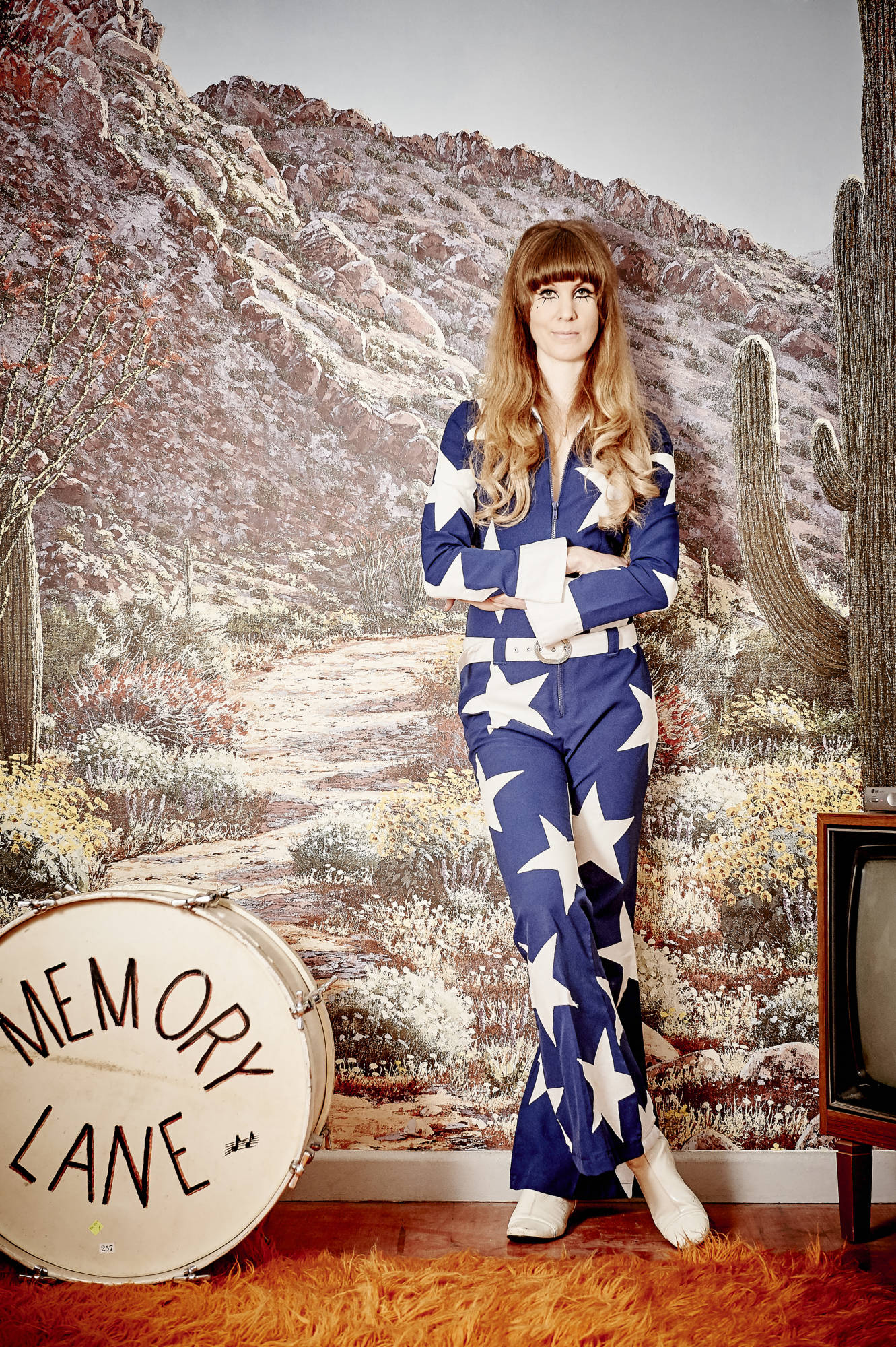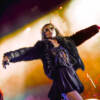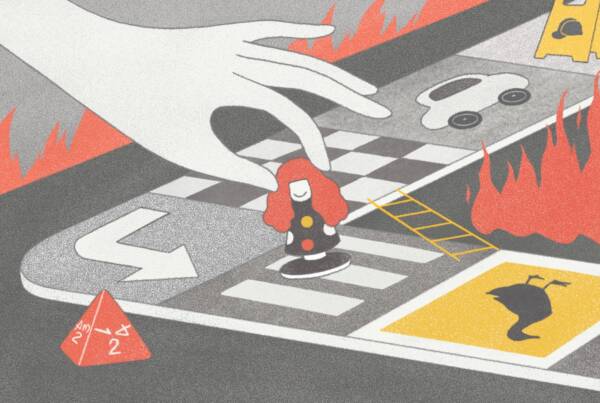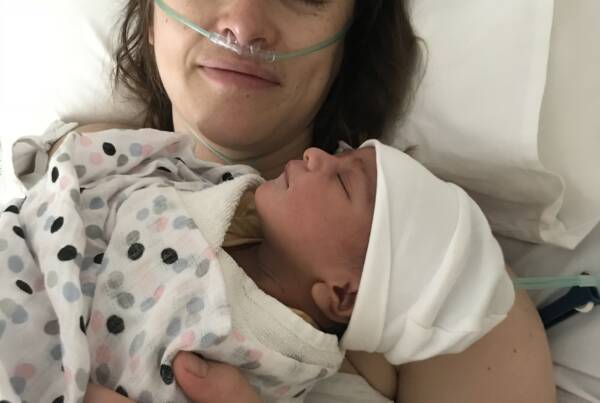Writing by Molly McKew // In this two-part series we chat to 6 female and GNC DJs about how they got into this uber-cool hobby, and for some, full-time profession. In part two, we chat to DJ Shimmy Barnes, DJ Ginger Light and PBS’s Emma Peel. They give us the low down on what they do, how they cultivated their sound, and we provide you with a bumper list of female and GNC DJs to get your ears into!
Here at Ramona music we have interviewed many, many songwriters and instrumentalists over the years – but there’s a whole realm of music-making we have left out, and that we are dying to know more about – being a DJ! In this two-part series we chat to 6 female identifying or GNC people about how they got into this uber-cool hobby, and for some, full-time profession. We spoke to club DJs, radio DJs and party DJs about how they got started, how they get gigs, and about their sound. I learnt about genres I’d never heard of – like Favela Funk – and now have some amazing Melbourne DJs to divide between Spotify playlists. We also compiled a bumper list of amazing female and GNC DJs for you to get your ears into – so get listening!
DJ Shimmy Barnes (Gretta Olson)
Can you tell me a bit about what you do as a DJ?
I play pretty regularly at a few excellent venues around town (e.g. Footscray’s Littlefoot Bar and Fitzroy’s The Shady Lady) and recently had a cheeky front bar residency at The Gasometer Hotel with my pal Alex AKA Chill Collins. I have also been fortunate enough to play at a few amazing femme-focused events this year such as the International Women’s Day fundraiser and Femmo Fest – raised money for the amazing Girl’s Rock! program, and most recently the SlutWalk fundraiser where I attempted playing in a giant flamingo suit. I also love a good house party set!
I get so much joy out of playing music that I love and I feel that I always reflect that when I play, I will always be having a solid boog and grinning ear to ear behind the decks which I hope is infectious.
How did you get your beginnings? Did someone teach you your skills or did you sort of pick them up along the way?
A bit of both, I have quite a few mates that DJ who over the last couple of years have been generous enough to take the time to show me the ropes and help me develop my skills. I have also been presented with opportunities to play at a variety of venues and special events, which has allowed me to get used to playing on different equipment and catering to varied audiences.
Can you tell me about your first gig as a DJ?
Aside from making extensive iPod playlists and burned CDs at many a party in high school – My first “legit” gig was a couple of years ago at a house party run by the party collective Genre Spanner. I was nervous as hell but once the adrenaline kicked in I didn’t want it to end! What was going to be a 2-hour set turned into about 4 hours and I was still playing to some very dedicated punters at 9am, who kept dancing despite the rain. It was such a thrill, I definitely won’t be forgetting that gig in a hurry. I’ll always be so grateful to the Genre Spanner crew for giving me that first opportunity.
Is it an expensive pursuit? Do I need to drop heaps of $$ on equipment?
It definitely can be. I am yet to delve into serious vinyl collecting which is where a fair whack of the money goes! I get by with USBs full of music files and I am fortunate enough to have friends who happily let me practice on their equipment (shout outs to you, mates). If you’re keen on a home set-up and have a few hundred bucks to spare then you can get some pretty reasonably priced basic CDJs and turntables to play around with!
Is it possible to make a living off being a DJ exclusively? What kind of work do you do?
Absolutely. For me personally it’s more of a hobby/side-hustle situation, however I still pinch myself that I get paid to play music I love and watch others enjoy what I do. From observing those who do make a living from DJing there are a lot of hard yards to be put in before this becomes a reality; hours of practice and collecting new music, a lot of late nights and weekends and work put into making a name for yourself, especially in Melbourne where there are SO many amazing DJs. It also means playing gigs that are not quite up your alley, but you should take every one as an opportunity to practice and get your name out there. If you put the hard yards in then there are incredible opportunities out there such as but not limited to playing music festivals and international gigs – just some of the perks of having such an adaptable skill!
Tell me about your music taste! Did your vibe or brand evolve naturally; or did dream up a sort of niche?
I have pretty eclectic taste which I try to express when I DJ but it really depends on the venue and the crowd. I guess I am a bit of an old soul – I will typically play a party set involving lots of disco/soul/yacht rock/new wave/Manchester/Kylie Minogue/straight up pop but also dabble in classic house/acid house and don’t shy away from a bit of techno at times; I just don’t get as many opportunities to play the latter, more electronic genres! Either way I try to make every song I choose one that evokes some sort of nostalgia. For example, “Jackie” by BZ feat. Joanne never fails to disappoint.
My unofficial tagline is “more bangers than a Bunnings sausage sizzle” which I think pretty much sums up the Shimmy Barnes experience, haha!
Do you find the scene you’re in is pretty male dominated?
It is definitely a frustrating reality that you may get asked to play on a bill just to fill a quota of female/female identifying DJs. This happens pretty damn regularly. Fortunately I think the DJ climate is changing in favour of us (especially in Melbourne) in that femme DJs have got some serious traction world over and are included in and often headline high calibre line-ups because they are talented as hell and have worked fucking hard to get to that skill level, despite the industry typically being dominated by the dudes. It’s a shame that, despite this progress, it seems a lot of up and comers such as myself feel that we need to prove ourselves and thus it makes it pretty daunting to put ourselves out there among the boys.
Thankfully there have been some incredible programs such as “About Time” that ran at Hugs & Kisses recently, tailored for female identifying DJs to learn and build their skills in a safe, judgement-free environment at their own pace; which I think is super important for building confidence.
Follow Gretta on Facebook
*****
DJ Ginger Light
Can you tell me a bit about what you do as a DJ?
I usually DJ mostly sixties records. Lots of girl groups and RNB soul sisters. Pop, Rock n Roll, Garage, French and local Melbourne stuff too. I annually DJ Boogie Festival. This yeah I went to Austin to DJ for the wonderful Betty Harris. I also enjoy DJing for local artist record launches. I’m not hugely into DJing in bars/clubs.
How did you get your beginnings? Did someone teach you your skills or did you sort of pick them up along the way?
I had a couple of mentors. I started out helping my boyfriend Ross at the time. He would ask me to play a couple of tracks for him while he went to the loo. He’d sometimes come back a hour later, leaving me to play what every I wanted. I was terribly shy, use to hide behind my long hair. Pierre Baroni was a great help, he was very supportive. He once told me to believe in myself and always play songs you love. His a great Melbourne DJ
Can you tell me about your first gig as a DJ?
I was so nervous. I couldn’t get the mixer to work. So I called up Pierre and he drove to the gig and shorted it out for me. The rest of the night was a blast. I had the dance floor shaking.
Is it an expensive pursuit? Do I need to drop heaps of $$ on equipment?
It is expensive, but well worth it. If you take care or your records they will hold their value and last the test of time.
Is it possible to make a living off being a DJ exclusively? What kind of work do you do?
Absolutely, I know a few people that do. I’m a hairdresser, I run a boutique salon in Collingwood. So that takes up most of my time. I’m always playing music for the clients in the salon.
Tell me about your music taste! Did your vibe or brand evolve naturally; or did dream up a sort of niche?
I use to listen to old sixties music on the radio with my Mum and my Pop. I always loved listening to music of most kinds. I didn’t start buying records till I was about 22. I brought myself a turntable and vowed to new but a CD ever again.
Do you find the scene you’re in is pretty male dominated? Is it outdated and annoying to be referred to as a female DJ?
I don’t find it male dominated in my circle. I have lots of female friends that are DJs. I doesn’t bother me at all.
Follow DJ Ginger Light on Instagram – @gingerlighthair
******
DJ Emma Peel
Can you tell me a bit about what you do as a DJ?
I’m both a radio DJ/broadcaster and a club DJ. I host a weekly radio program on Melbourne’s community radio station, PBS FM. The show’s called Switched On and is broadcast live on Saturdays from 1-3pm. I play strictly vinyl, mostly from the 1960s and 1970s with some new releases chucked into the mix as well. The show takes listeners on a trip around the world to check out the various sounds emerging from Brazil, Colombia, USA, France, Italy, UK, Peru, Mexico…and everywhere in between. In between sets, I talk about the history of the music and the artists so it’s informative as well as funky listening.
How did you get your beginnings? Did someone teach you your skills or did you sort of pick them up along the way?
Well, I’ve been DJing in clubs since I was 18 – so more than 20 years now. I’ve been Djing/Broadcasting on radio for around 14 years. For each, I was taught on the fly and had to figure out the rest of it myself over time. I remember my first solo broadcast on RRR FM. I was doing a summer fill for Johnny Topper’s New and Groovy. I’d been on RRR as a guest before, but had never worked the studio panel. It’s very different to using a standard DJ mixer. For one thing, there are a hell of a lot more buttons! It looks a little like the innards of Dr Who’s Tardis. Anyway, I got to the station an hour before I went live and someone in the office came in and gave me a cursory lesson in what to do, which went a little bit like this: “Press this button and press that button, and what ever you do, don’t press THAT one!” That was it. I broke out in a cold sweat. Somehow I managed to make it through a two hour broadcast. It couldn’t have been too bad, because I did a tonne of fills on RRR after that. I’d hate to listen back to it now, though. What a cringe. Soon after, I got picked up by PBS FM and offered the Saturday afternoon slot, where I still remain today.
Can you tell me about your first gig as a DJ?
Learning how to DJ was a similar story. I rocked up to the club an hour before it opened to practice, but the guy who was supposed to show me the ropes didn’t turn up until 5 minutes before doors opened. In that short time, he attempted to show me how to wind records and cue. It was pretty darn stressful, and I guarantee that my first set was full of plenty of dead air in between tracks.
Is it an expensive pursuit? Do I need to drop heaps of $$ on equipment?
Yes, it can be expensive. If you want to have your own gear, it’s not cheap but it pays off. I bought my Technics turntables and mixer in 2001 and they’ve never failed me yet. I wanted to own my gear, so I could prep sets and practice at home. I spent hours and hours practicing early on. These days I still practice, but I mainly focus on set flow. Playing gigs regularly around Melbourne plus hosting a weekly radio show means that I’m always buying records, and there’s a bit of outlay on replacing needles, broken headphones etc throughout the year. But, generally speaking, the gigs that I do more than pay for it all, so it works out fine.
Is it possible to make a living off being a DJ exclusively? What kind of work do you do?
Yes. You can make a living as a radio broadcaster, but you’d need to be on a commercial station or do a breakfast show to get paid. At PBS FM, I’m a volunteer – all of the announcers are – but because I’ve been around for a long time and have a ‘profile’ I pick up a lot of work ranging from MCing at festivals to DJing and curating shows. In other words, I do alright. It’s not my exclusive line of work, though.
When I was a teenager DJing was my sole income and I lived comfortably, but eventually I found that Djing for a ‘job’ took the fun out of it for me. I started to hate music, so I stopped doing it full-time. These days I am lucky to be in a position where I can pick and choose gigs. By day I work as a copywriter, by weekend I work as a radio broadcaster, and by evening I work as a DJ. I’m also the co-director of an annual music festival, The Reservoir Stomp, which I run with my husband. It’s a great balance – and it’s all creative and wonderful work.
Tell me about your music taste! Did your vibe or brand evolve naturally; or did dream up a sort of niche?
I am a vinyl-only girl. I’ve been collecting it since I was 15 years old. Originally I was obsessed with obvious 1960s artists like Dusty Springfield, Jefferson Airplane, the Doors – all that. It’s evolved a hell of a lot since then – and in fact, it never stops evolving. My taste is very much rooted in the 1960s and 1970s, but spans far and wide to include everything from Latin soul to cumbia, Brazilian funk to British psych, American sunshine pop to French jazz… and everything in between. I’m passionate about music, so I’m always digging for new/old undiscovered gems that give me goosebumps – tunes that I can’t wait to share with PBS FM listeners, or with a dancefloor. For this reason, I guess my vibe or brand is always expanding and building.
Do you find the scene you’re in is pretty male dominated?
Not really. Community radio is pretty strong on gender equality. In the DJ scene, too, there are a lot of great female DJs about these days. It wasn’t always that way. When I started out, being a female DJ was a lonely and frustrating experience. There were so many gigs where I got treated like a total dummy, like I couldn’t possibly know what I was doing, with men sweating on me and hovering around ‘just incase I needed some help.’ I didn’t.
Tell me some cool female DJs I could look to for inspiration!!
There are so many brilliant DJs on community radio, it’s hard to know where to start. On PBS FM there’s Lyndelle Wilkinson and her show, The Afterglow. I admire her because she is a brilliant announcer – a total pro – and radiates such happiness through the airwaves every week. Louise Please is also a legend. She plays in a few bands around town and also hosts Mixing up the Medicine. She has a cool and casual announcing style and plays some weird and trippy stuff. On RRR FM there’s Annaleise Replica and her show Neon Sunset. Again, she’s such a pro. Her shows are always well-researched and well-presented. Her show overlaps with mine on a Saturday afternoon though so, um, you’d probably better listen back on the RRR on-demand function afterwards!
Follow DJ Emma Peel’s show ‘Switched On’ on Facebook or follow Emma on Instagram
******
OTHER ARTICLES AND RESOURCES
Info on RRR presenter training: https://www.rrr.org.au/get-involved/how-to-volunteer/presenter-training
Info about SYN FM youth radio’s training programs and opportunities: http://syn.org.au/learn/
Vinyl Vixens, a Melbourne based DJ and VJ collective for female and GNC people who run events, courses and generally promote awesome DJs!
Anonymous piece in the Guardian (2016), ‘The secret life of a DJ: A joyous job in a grimly misogynistic industry’
Investigation by VICE (2014), ‘Where are all of Australia’s female DJs?’
SOME MORE AWESOME female or NGC DJs
Coco Brown (DJs at Shimmy Shimmy)
Annaliese Redlich (RRR) – Neon Sunset (Saturdays)
Systa BB (RRR) – The Good, the Dub, and the Global (Tuesday afternoons)
CC:DISCO (PBS) – Smoke and Mirrors (Friday nights)
Lyndell Wilkinson (RRR) – The Afterglow (Wednesdays)









